Project: Development Project for the Rag-Picking Communities
Location: Kolhapur, Maharashtra
Category: Education and Empowerment
Empowering Waste Picker Communities
Avani is an NGO that works alongside women and children from the homeless, migrant, and nomadic communities around Kolhapur, Maharashtra. In 2017, according to Anuradha Bhosale, Avani intended to use its IDS grant to “support our seasoned staff at fulfilling their ongoing mission to survey, evaluate, train, implement, and monitor our ten waste picker community program areas.”
The original target group of beneficiaries was 366 families living in the ten waste-picking slums of Kolhapur. Here are just a few of their accomplishments this year:
- Health camps attended by more than 7,000 women provided vision checkups, blood pressure checks, distribution of free medicines, etc.
- Children’s scholarships have provided school supplies, food, and clothing to 298 children.
- Social security checks now come to 700 women after Avani assisted them in submitting the necessary petitions to the Social Welfare Office and Block Magistrate.
- A waste-pickers’ labor union was formed by 940 women with Avani’s guidance.
- More than 1,300 girls and 107 boys attended health education and life skills classes. (These classes, which Avani instituted, have now been taken over by the government. Avani will continue to monitor how these programs are implemented.)
- More than 20 women waste pickers have begun their own green businesses, managing the wet and dry waste for 6,300 families.
Bhosale estimates that Avani was able to achieve approximately 85% of its goals. The NGO is still working on obtaining proper birth records for waste pickers; these records will help the women apply for government social security schemes in which they are entitled to participate.
Avani trained the leaders among the women to petition the government for ID cards that recognize and document their service to Kolhapur through the waste management work they perform. As of the time of Avani’s progress report, ID cards had been issued to 600 women in the target group of 934.
Many of the challenges Avani faced were anticipated. For example, most of the time, waste pickers’ free time is limited; they were available to meet only after 5:30 p.m. in the evening. Conducting meetings at this time sometimes proved a little difficult for Avani’s staff. Once scheduling was worked out, these evening meetings were no longer an obstacle.
Almost all waste pickers are uneducated, and it was difficult to convince them that education is important, especially for their young daughters. Without an education, many waste picker children are forced to become child laborers. Avani identified and counseled more than 200 school dropouts; these children are now regularly attending school again.
Waste picker communities harbor many superstitions and blind beliefs. This made them reluctant to be examined by doctors and suspicious of medical prescriptions. They were not convinced of the benefits of proper hygiene. Eventually, they came to accept and appreciate the scientific approach to health care.
The local municipal corporation recognizes the part the waste pickers play in protecting the environment. In twelve different neighborhood wards, 55 waste pickers have been hired to segregate the wet and dry waste. Avani is working on awareness campaigns to educate the community on the importance of wet/dry waste segregation.
The news is spreading. New housing societies and neighborhoods approach Avani weekly, interested in hiring Avani waste pickers to manage their waste. Waste pickers from other nearby districts are requesting Avani’s help in training and green business establishment.
IDS Coordinator: Nila Vora
Project Manager: Anuradha Bhosale
–2017 IDS annual report
Avani is an NGO that works alongside women and children from the homeless, migrant, and nomadic communities around Kolhapur, Maharashtra. IDS has supported this project since 2013. In 2016, Avani worked in ten slum areas and affected the lives of about 2,000 people.
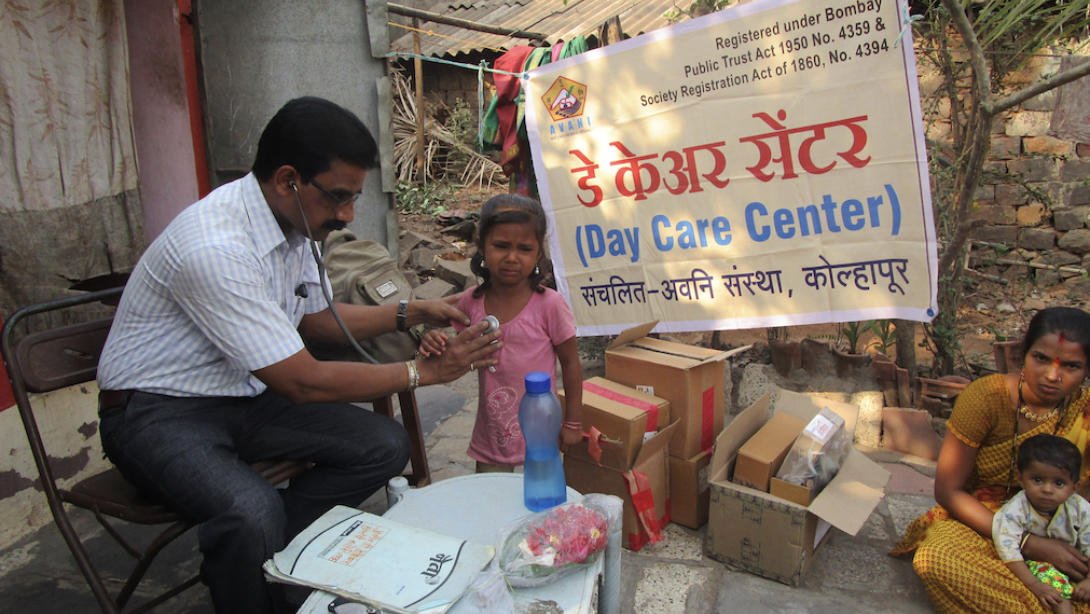
Here are some specifics:
- Health Camp: This benefited over 900 women by providing free medical exams.
- Hygiene Education: Avani conducted two cleanliness drives in each of the ten slums. Field workers educated the community about the need for personal hygiene: the importance of washing hands with soap and the use of gloves and masks when collecting waste from the public waste bins.
- Life Skills Education Classes: Training was provided for 647 children aged 12–15 years (both girls and boys).
- Training Program for Child Leaders: Avani educated young girls and boys about their rights; leadership training was given to 82 boys and 89 girls.
- Training Program for Adult Leaders: Avani formed a union for over 940 women and educated them about their rights; the women were also given information on creating and managing a green business.
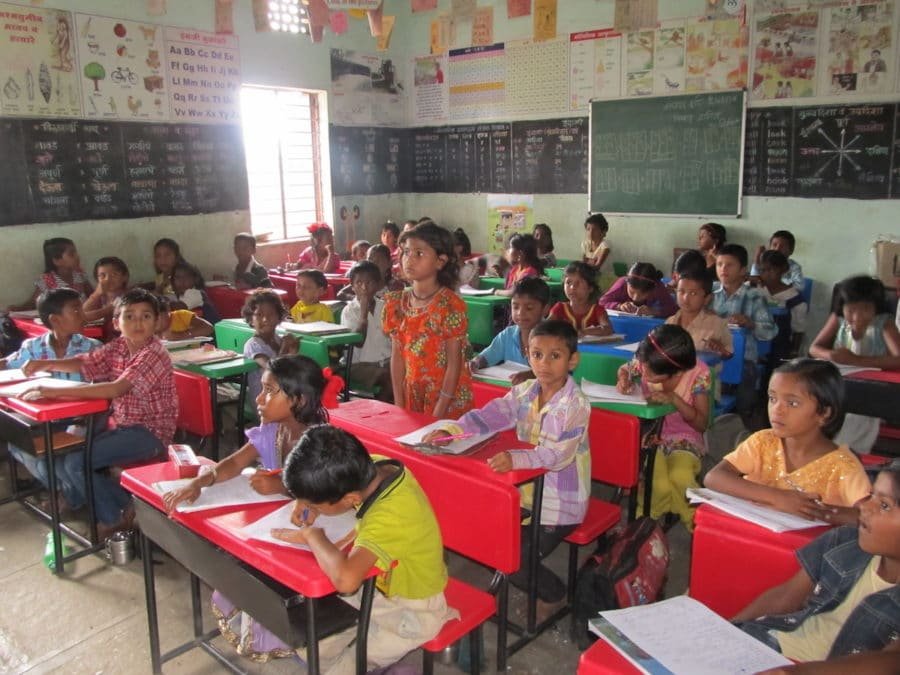
- Right to Education: Under the 2010 law, Avani worked with local headmasters to identify potential school attendees (aged 6–14) from among the waste picking communities. Scholarships were awarded to 269 students by the social welfare department.
- Housing: Avani helped 201 waste pickers apply for the housing scheme provided by the government; next year, they will receive funds to build a single house that includes a kitchen, bedroom, and a washroom with an operable toilet.
- Widows’ Pensions: Avani helped 103 widowed women file for their widows’ pensions from the Indian government.
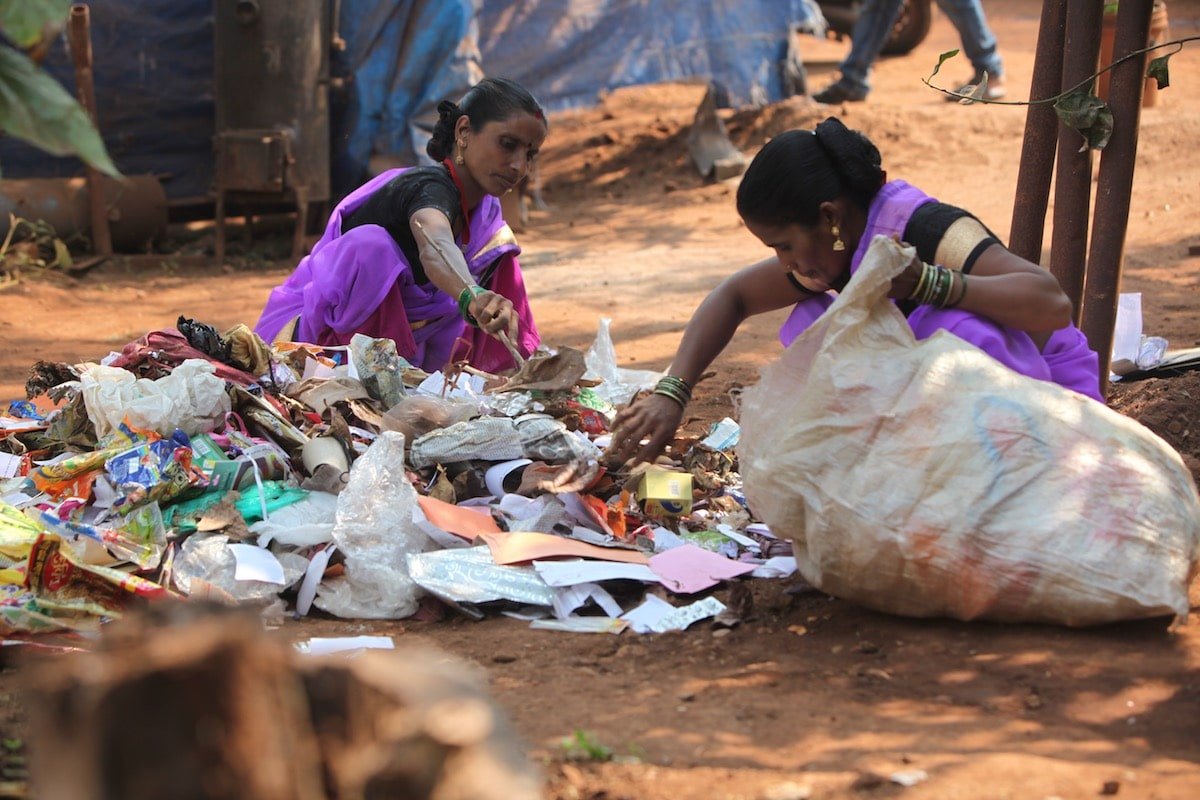
- Creation of Green Businesses: By hiring women to segregate plastic waste, Avani helped them earn additional income during festivals and special events. Currently, 24 waste pickers are managing the neighborhoods of Kolhapur (6,300 families) and the women receive a regular salary of about Rs. 6,000/month.
- Working in Alliances: Avani is now part of a networked organization called the All India Waste Pickers Association; 33 other waste picking organizations across the country are also members.
IDS Coordinator: Nila Vora
Project Manager: Anuradha Bhosale
–2016 IDS annual report
I am text block. Click edit button to change this text. Lorem ipsum dolor sit amet, consectetur adipiscing elit. Ut elit tellus, luctus nec ullamcorper mattis, pulvinar dapibus leo.
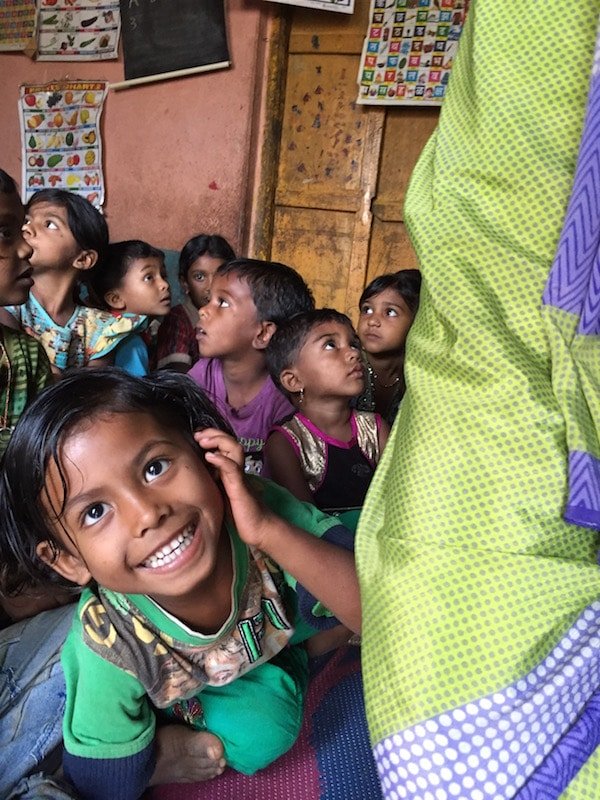
In 2015, Avani, with funding from IDS, continued implementing projects in the following domains:
Health Education: Avani educated rag picker communities on topics such as nutrition, environment, sanitation, and personal hygiene. Health check-ups were conducted in the slums with the help of private doctors. The target audience was women and children.
Nutritional Education: This prevention-based program helped women understand the importance of including seasonal fruits and vegetables in their diet. Unfortunately, most workers cannot afford fresh produce on a regular basis. For this reason, Avani provided nutritional supplements, such as iron and calcium tablets, free of cost.
Women’s Rights: In a male-dominated environment, Avani organized women rag pickers to build awareness about their basic government rights. It continues to help ensure each woman has a BPL (below poverty line) ration card and access to free legal counseling.
Infrastructure: While the government has provided every slum with certain infrastructure amenities such as toilets, access to drinking water, and public sanitation (drainage), it has not been enough. To combat this shortage, Avani has petitioned the local municipal government to provide more sanitary facilities. This has been a tremendous challenge due to government corruption and bureaucracy.
Education: Avani has worked with the community to send every “out of school” child to school through the government’s Integrated Child Development Services (ICDS) and implementation of the Right to Education Act (RTE) of 2009. As a result, 220 unschooled children are in school today. Rag picker families are changing their view on education for the better.
Union Membership: More than 800 rag picker women are now members of Avani. As union members, these women are allowed to manage a waste management project at the city level.
Avani is currently working with the government to ensure that the union remains legal and is registered. It hopes to reach this outcome within the next 9 months. Looking ahead, Avani will continue pursuing outcomes in each of these areas in 2016.
–2015 IDS annual report
The millions of rag pickers who search for recyclable garbage keep India’s cities cleaner, yet the public shuns them. They come from different parts of the country where the rural economy has not been able to sustain them. Without a support system, they lack basic access to education, nutrition, health care, and other infrastructure.
In 2014, Avani, an NGO located in Kolhapur, Maharashtra, began involvement with ten separate rag picker communities made up of 1,800 individuals. In existence since 1996, Avani has taken a sustainability approach in its outreach programs. Rather than providing simple handouts or charity, this NGO promotes access to education and municipal rights, enabling future generations.
Through an initial grant provided by IDS, Avani made substantial progress with Kolhapur’s rag picker communities on several fronts. Highlights include:
Adult Literacy: A pilot program was started with the help of a local volunteer to teach reading, writing, and math skills to 30 adult women. Avani will expand this program to all ten rag picker communities.
First Daycare Center: Shortly after giving birth, most rag picker mothers take their newborn and small children with them as they work in the slums. Avani started the first-ever daycare center for some of the women of the Rajendra Nagar area. Mothers brought fifteen children to the new center while they themselves received education and training in proper child-rearing methods and issues of health and hygiene.
Sanitation: The local government does not recognize rag picker communities as living dwellings; therefore, local municipalities offer no assistance to establish proper sanitation in the ten slum areas. Avani sent a letter to the Sanitary Inspector for the Municipal Corporation to demand attention to the sanitary conditions in the slum communities. The organizations are currently working together to address the sanitary concerns.
Waste Management: Rag pickers are unaware of the health consequences of continual exposure to medical and electronic waste, noxious gases, and fumes from burning trash. Avani held an informational workshop for women to help them better understand the waste materials they handle and to show them how to create a “zero waste” zone. Women were also educated on their human rights as Indian citizens and taught how to advocate for themselves to the local municipalities.
Moving forward, Avani’s plans for 2015 will focus on sustainable solutions to empower rag picker community members in such areas as obtaining proper identity cards, creating unions at the state level, and implementing technological solutions to promote safer and cleaner waste management. Waste management within these communities continues to be a pressing need and IDS will assist Avani with best practices in waste management to address this challenge.
–2014 IDS annual report
More than 80 million children in India are involved in child labor, street begging, or sexual trafficking, and about 35,000 of them are in Kolhapur, Maharashtra. Here, in a city famous for its brickyards, children as young as five labor in the sun to mix water, straw, clay, and ash to make bricks. Many of these children work for less than 40 cents per day and have no access to basic welfare, safety, and education. Despite these troubling statistics, progress has been made in the past decade. Since 1996, Avani, a non-governmental organization founded by Anuradha Bhosale, a former child laborer herself, has rescued thousands of these workers and provided them with essentials such as food, clothing, and shelter.
Avani has embraced a sustainability approach with its outreach programs. Rather than providing simple handouts or charity, the NGO promotes access to education and municipal rights, helping to empower future generations.
Starting this year, IDS is working with Avani to help Kolhapur’s 1800-member rag picking community. For $30 per year, Avani will provide a family of five with access to health care, shelter, and clean water; training on hygiene, nutrition, and proper sanitation will also be provided. Avani will also embark on unionizing the community so that it is represented at the government level.
Primary goals for the rag picking community include:
Health—Create awareness of skin and intestinal diseases and promote the importance of personal hygiene.
Nutrition—Teach the importance of proper nutrition, especially during pregnancy and early childhood development.
Education—Educate rag picking parents to organize their own school management committees in order to monitor and guide their children’s education.
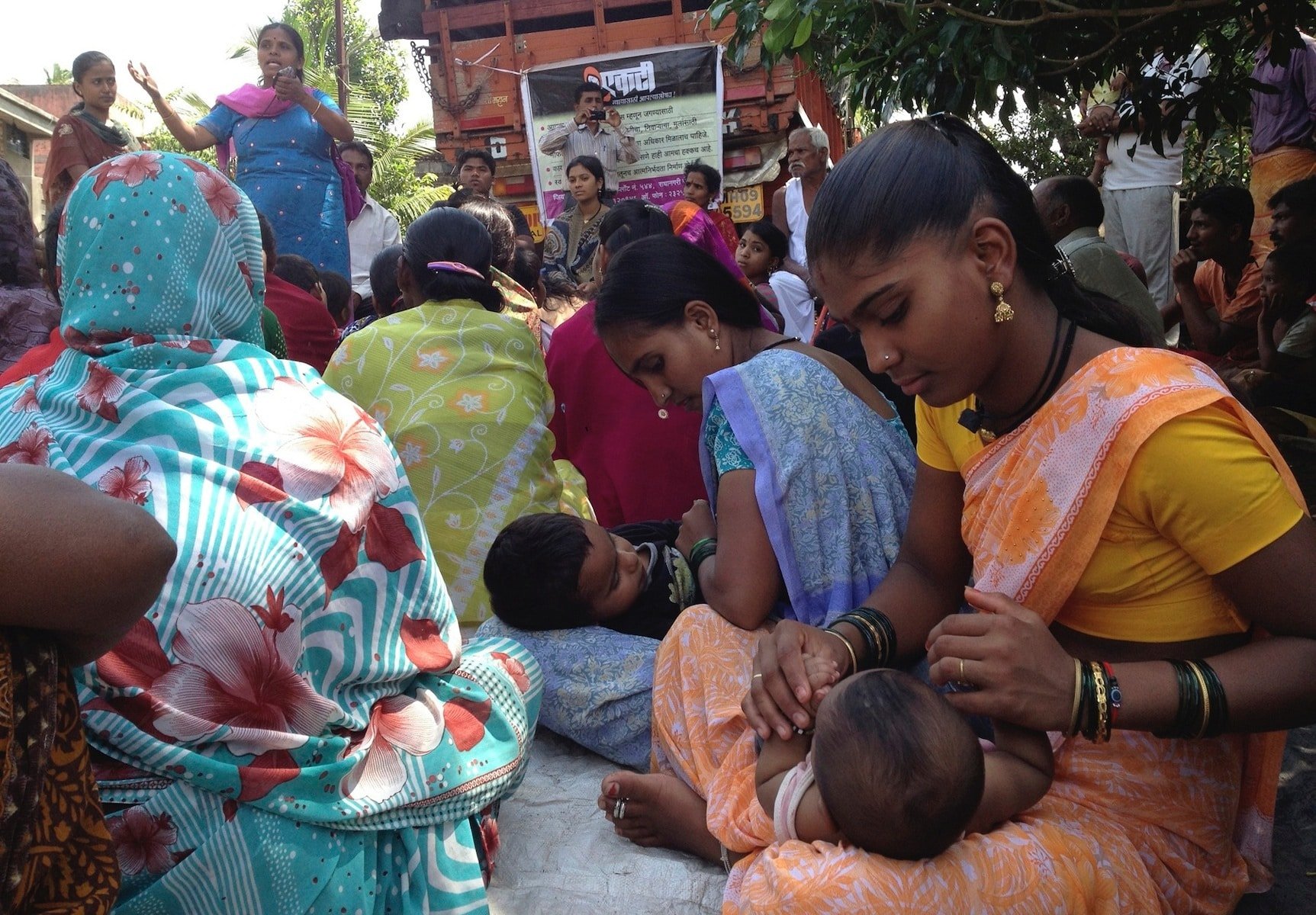
–2013 IDS annual report

